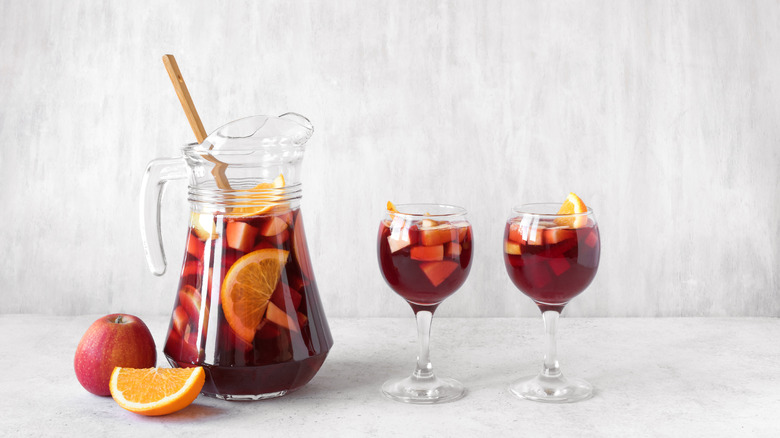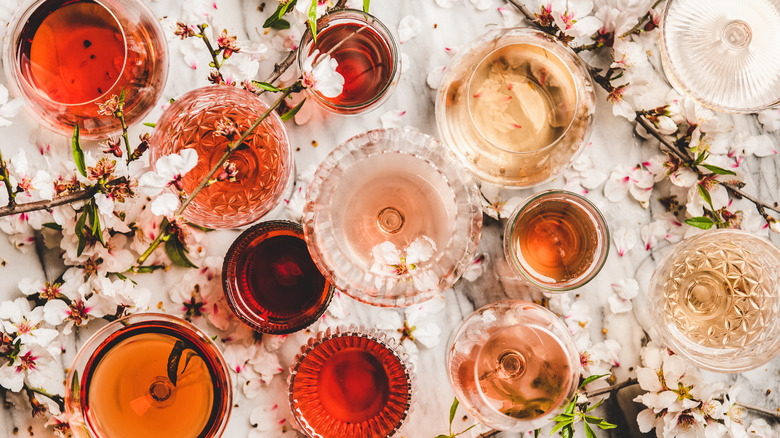The Types Of Wine You Should Avoid When Making Sangria
Sangria is made for warm weather, which is why there's no better time than the present to start perfecting your recipe. Lending itself wonderfully to all sorts of variation, the one component that requires a bit more thought is its base. Rather than continue believing the myth that any bottle or box of wine can be used to make the Spanish-style drink, we're setting the record straight and sharing which wine styles should be avoided when whipping up a pitcher.
Visually speaking, sangria is a stunner. Segments of citrus and flecks of fruit lazily dance inside the wine-filled pitcher each time the mixture is stirred, enticing all who wait for a glass. On the palate, the chilled drink is no less impressive. Teetering between tart and sweet, sangria bursts with complexity despite consisting of a few ingredients. With wine, sugar, fruit, and liqueur acting as the most basic elements needed for sangria, the best recipes often emphasize flavors highlighted in the vino of choice, which is why choosing the right wine is a must.
While reds are the more traditional choice, that's not to say that white, rosé, or even sparkling wines can't also be the star of a sangria. However, some styles should never make their way into the punch. Any guesses as to which they may be?
Stay away from overly sweet and high-tannin flavor profiles
Opting for quality bottles should be a priority. But that doesn't mean you need to splurge, either. Since more expensive wines tend to be full-bodied and with age-worthy qualities that can become masked in a sangria, they won't do any favors in making the punch more sippable.
Generally, when it comes to which wines fall short in a sangria, those with a highly tannic profile and the presence of oak prove the most unpleasant on the palate. Drastically contrasting the fresh and fruity nature of sangria, chilly temperatures (typical of how the cocktail is served) can also accentuate tannins and render the punch more bitter, while oakiness can become overwhelming. Yet, even aromatic white wines have the potential to spoil a sangria as their perfume can get lost in the mix and throw off balance.
As a final word of advice, since a splash of liqueur will make the drink all the more boozy, it's also best to avoid high-alcohol wines. By the same rationale, overly sweet wines should be nixed in favor of dry styles, given that sangria recipes build on sweetness. Of course, when in doubt, you can always just consult our guide on which wines fare best in sangria.

